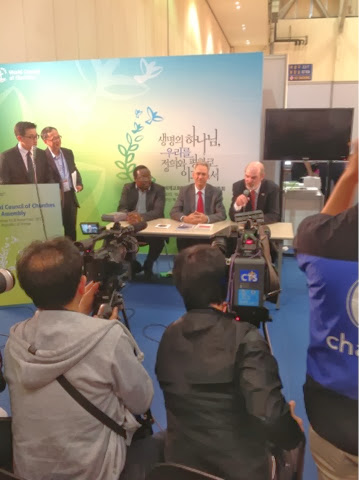It is commendable that the WCC stands with all Christians, especially in Syria, Egypt, Iraq, Iran and Palestine/Israel.
The statement strikes out for justice when it "demands" the release of two archbishops from Aleppo, Syria, who were kidnapped in March 2013, and are still being held.
It's call for humanitarian access into Syria and for the rights of Christians in Egypt, Iraq and Iran are profound and hopefully will get the attention of governments.
When it comes to the Palestine/Israel conflict, however, the statement falls short in its dependence on what seems to be the Palestinian narrative alone.
Paragraph 3.5 states,"This tension and violence around the Middle East and in North Africa is taking place in the midst of the on-going and longstanding Palestine/Israel conflict in the region, and the Israeli occupation of Palestinian and Arab territories since 1967. This remains a central issue and a major source of concern for all who are working for peace with justice for reconciliation. It also remains the core problem that is fueling the logic underlying many of the conflicts in the region, putting at risk international relations and peace."
No one should take the situation faced by Israelis and Palestinians lightly and this document does not do that. Solidarity with those who suffer injustice anywhere in the world is a mission of the One Church. But fairness is also a part of justice. A line about the real fears of Israelis in the conflict may have been helpful and charitable to the other side of the story.
As far as this conflict being the "logic" for many conflicts in the region, one wonders if the growing power of Iran and Hezbollah might have a role in the tensions as well as radicalized Islamic groups.
The document's call to Christian churches throughout the world supporting Christians throughout the Middle East is challenging and commendable. Missing however, at least in this document, is a reaffirmation or call for a two-state solution in the Palestinian/Israeli conflict and some creative activism such as positive investment in Palestinian business, produce and other aspects of the Palestinian economy. Peace can only be achieved through justice and reconciliation. That is true. But fairness and charity must also play a part.



















